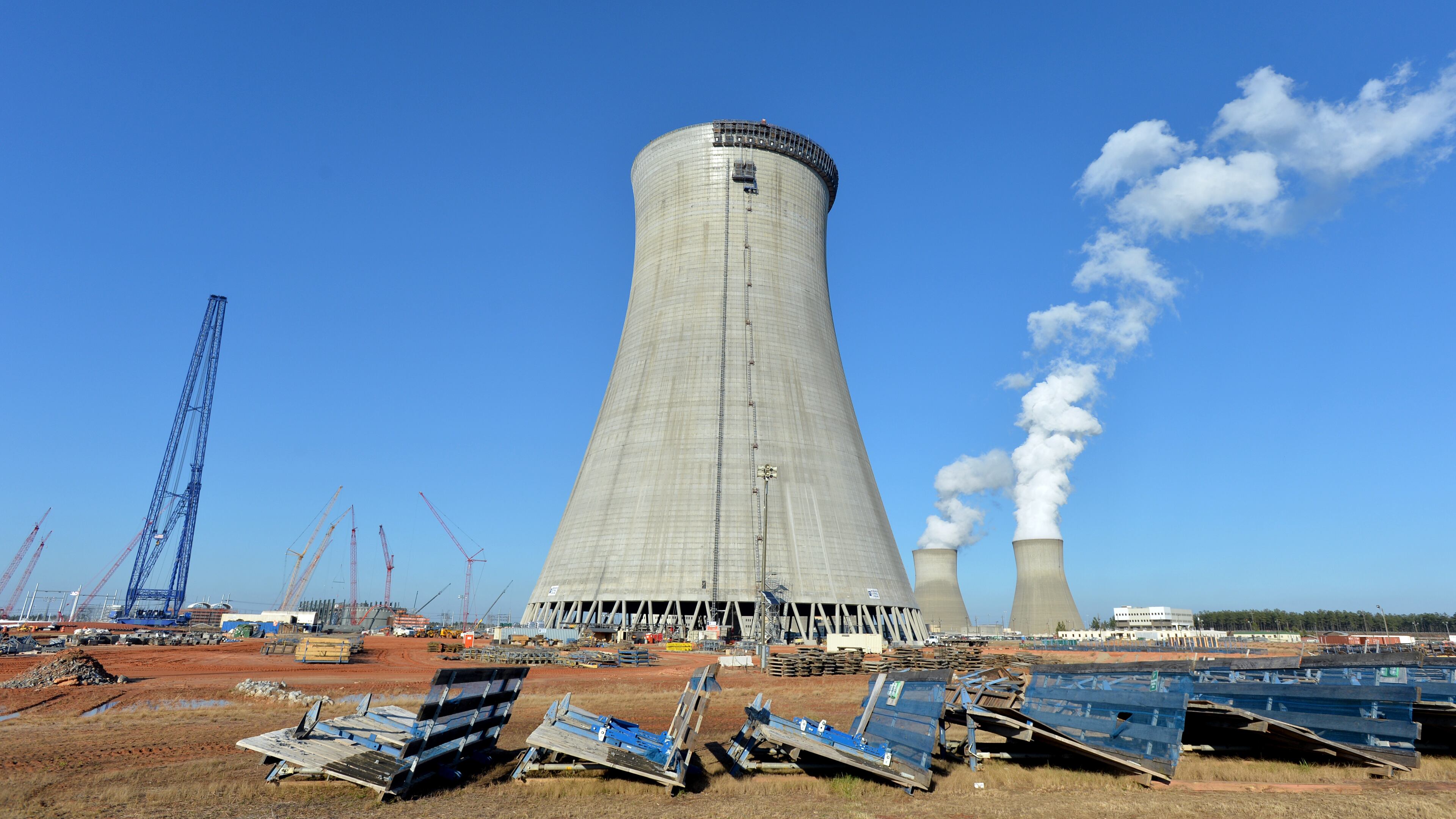Ga. Power seeks ‘best path forward’ at Plant Vogtle

Westinghouse Electric Co. filed for bankruptcy protection Wednesday, throwing a wrench into the works at Georgia Power’s Plant Vogtle expansion and possibly into the nation’s attempts to revive the nuclear power industry.
The Pennsylvania company said it reached agreements with Georgia Power and SCANA to keep building new reactors and related facilities at their two plants in Georgia and South Carolina, respectively, during a 30-day "initial assessment period."
Georgia Power confirmed it has a 30-day agreement but didn't elaborate on terms, or say what will happen if it is not renewed.
The project’s 5,000 employees and contractors continued to work Wednesday at the Vogtle site under the agreement, which ensured “that the workforce would be paid,” said Stan Wise, chairman of the Georgia Public Service Commission, which regulates Georgia Power.
Westinghouse is the main contractor in charge of supplying reactors and related construction in Georgia and South Carolina. They are the first new nuclear projects in the United States in more than three decades.
The company, a unit of Japanese conglomerate Toshiba, sought bankruptcy protection from creditors after losing billions of dollars on the Vogtle and SCANA contracts, which shifted the risk of cost overruns to Westinghouse and its parent.
Westinghouse also said it had obtained $800 million in financing to sustain operations during the bankruptcy reorganization.
But experts believe Westinghouse wants out of the nuclear plant construction business, meaning Georgia Power and SCANA will have to find new construction contractors or manage the projects themselves.
“It’s pretty clear from their (bankruptcy) filings that they’re looking to us to take over this project,” SCANA Chief Executive Kevin Marsh said Wednesday in a conference call with investors.
Southern Co. CEO Tom Fanning, who flew to Tokyo ahead of Westinghouse’s bankruptcy filing, told The Wall Street Journal that thousands of Georgia jobs could be endangered if Toshiba doesn’t commit to paying billions in cost overruns.
“The commitments are not just financial and operational, but there are moral commitments as well,” Fanning told the Journal in an interview from Tokyo. Fanning also said he has spoken to Vice President Mike Pence, Commerce Secretary Wilbur Ross and Energy Secretary Rick Perry about the importance of completing the reactors, according to the report.
The bankruptcy filing means the Vogtle project — already $3 billion over budget and three years behind schedule — will take longer and cost even more to complete, experts said.
“They know there are going to be more delays and more costs,” said Bobby Baker, a former commissioner on the Georgia Public Service Commission. He said the project’s total price tag could rise to $20 billion, from its original projection of $13 billion.
Customers, who already pay financing costs in their monthly bills, could eventually be hit with higher rates to cover rising construction costs. But that depends on how the project plays out and what cost-sharing formula the PSC allows.
Georgia Power did not answer questions about the Westinghouse move. In an emailed statement, the company said it is “working with Westinghouse to maintain momentum at the site (and) currently conducting a full-scale schedule and cost-to-complete assessment to determine what impact Westinghouse’s bankruptcy will have on the project.”
“We will work with the Georgia Public Service Commission and the co-owners to determine the best path forward,” Georgia Power said.
Georgia Power’s project to add two new reactors at the plant near Augusta began eight years ago. Since then, falling prices for natural gas and power from solar and wind farms have cut into the advantages of the new Vogtle plant.
It is not expected to be completed before 2020, and was recently projected to cost more than $17 billion — before the bankruptcy’s complications.
Electricity demand also has been falling in recent years as more and more cities, homes and businesses convert to more efficient lights, appliances and equipment.
Those trends and Vogtle’s rising price tag have whittled away some of the project’s projected savings, said Wise, the PSC chairman. But he added that he thinks it will probably make sense to go ahead with the project if its long-term costs are still similar to alternatives.
“You’ve already invested billions of dollars,” he said.
Georgia Power, the largest owner and lead partner in the project, has so far spent almost $5.2 billion on the expansion, including the financing surcharges that add about $100 a year to the typical residential customer’s bill.
Vogtle’s total cost so far has been about $11.3 billion.
Baker, the former PSC commissioner, also said he thinks a decision by Georgia Power to abandon the project is unlikely. “They’re not going to walk away from it. That would be a disaster,” he said.


